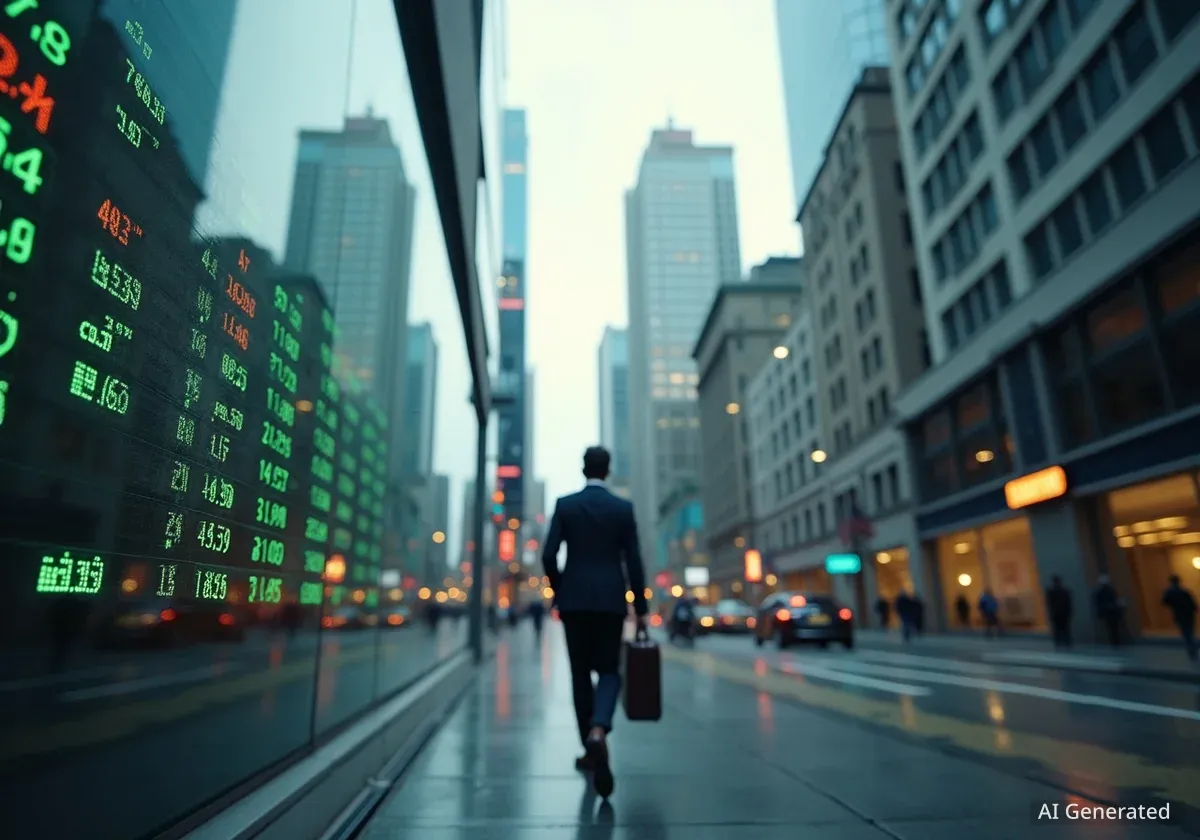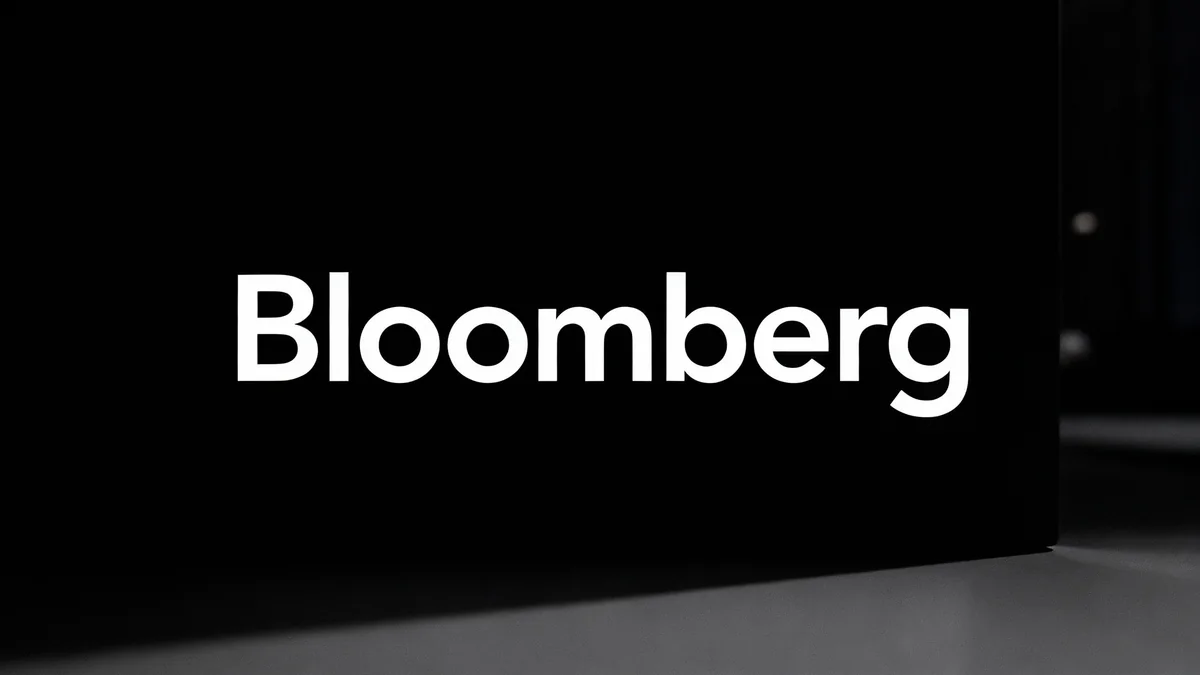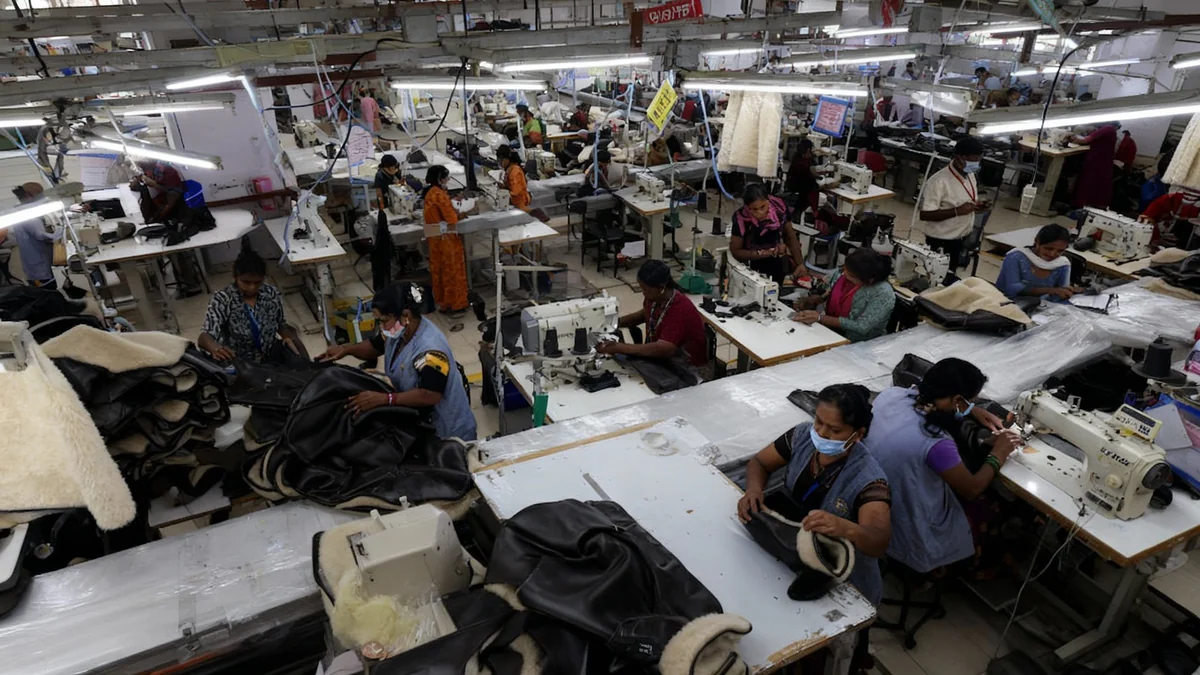Financial markets are navigating a period of significant uncertainty as renewed trade tensions between the United States and China emerge. While some analysts see major opportunities, others caution that tariff threats could reintroduce volatility, leaving investors to weigh conflicting economic signals.
Commentary from leading financial experts in early October 2025 highlights a sharp division in market sentiment. The situation is complicated by ongoing domestic political issues, including a government shutdown that has led to federal employee furloughs, adding another layer of economic pressure.
Key Takeaways
- Renewed tariff threats between the U.S. and China are creating economic uncertainty, according to economists.
- Financial analysts are offering conflicting advice, with some seeing significant investment opportunities while others warn of market bubbles.
- An insider report has raised concerns about China's trade practices, describing them as involving "a lot of games."
- Domestic issues, such as a government shutdown and resulting EPA furloughs, are contributing to the complex economic environment.
Navigating US-China Trade Dynamics
The relationship between the United States and China remains a central focus for the global economy. Recent discussions around potential new tariffs have put markets on edge, prompting varied interpretations from financial analysts.
According to Charles Payne, a prominent market commentator, the current friction should be viewed as part of a larger negotiation process. He suggested that the tough rhetoric is a strategic element of ongoing talks rather than a definitive breakdown in relations.
"This is just further negotiations between US and China," Payne stated on October 10, 2025, implying that a resolution is still possible.
However, this view is not universally shared. Another economist warned that the simple threat of tariffs could be enough to destabilize the market. The uncertainty makes it difficult for businesses to plan for the future, potentially impacting investment and hiring decisions.
Concerns Over Trade Practices
Adding to the complexity, an insider has provided a critical perspective on China's approach to trade. The source, who spoke on the condition of anonymity, described tactics that could undermine fair competition.
The insider's account pointed to manipulative strategies, stating there were "a lot of games, a lot of funny business" involved in the country's trade dealings. This testimony reinforces long-standing concerns in Washington about intellectual property theft and non-tariff barriers to trade.
Background on Trade Negotiations
The U.S. and China have been engaged in complex economic discussions for several years. Key issues include the trade deficit, market access for American companies, intellectual property protection, and government subsidies for Chinese industries. Previous rounds of tariffs have impacted billions of dollars in goods, affecting supply chains and consumer prices globally.
A Divided Wall Street
The uncertainty stemming from international trade and domestic politics has led to a fractured consensus among financial experts. Investors are receiving mixed signals about whether to be optimistic or cautious.
On one side, some analysts believe the market is fundamentally strong. One expert noted that it is a "great time to be in the equity market," and a separate strategist predicted that business would be "booming in the next quarter." This optimism is partly fueled by positive economic indicators in other sectors of the economy.
Charles Payne also expressed a highly optimistic view, referring to a "multi-trillion-dollar opportunity" for savvy investors who can navigate the current landscape. This suggests that despite the risks, significant gains are possible for those who make the right moves.
Warnings of Volatility and Bubbles
Conversely, other respected voices are sounding an alarm. Ben Levisohn, a financial journalist, characterized the market environment as ripe for speculation, calling the period "the week for bubbles." This suggests that some asset prices may be inflated beyond their intrinsic value, posing a risk of a sharp correction.
Investor Sentiment Indicators
Recent surveys of investor sentiment show a growing divide. While institutional confidence remains moderately high, retail investor anxiety has increased by approximately 15% over the past month, according to data from the American Association of Individual Investors. This divergence highlights the different risk perceptions in the market.
Jamie Dimon, the CEO of JPMorgan Chase, has also been a subject of discussion. Analyst Mike Murphy pointed out that Dimon "doesn't have a great track record of timing the markets," suggesting that predictions from high-profile figures should be approached with caution. This serves as a reminder that even the most influential voices in finance can be wrong about market direction.
Domestic Pressures Compound Economic Concerns
The economic picture is further complicated by challenges within the United States. A prolonged government shutdown is beginning to have tangible effects, creating a drag on the economy and affecting federal workers directly.
On October 10, 2025, the Environmental Protection Agency (EPA) sent its first furlough notices to employees. This action is one of the first concrete signs of the shutdown's impact on the federal workforce and the services they provide. As the shutdown continues, more agencies are expected to follow suit.
Reports from Washington describe the political atmosphere as tense, with one source noting that the temperature is "spiking' on Capitol Hill." The political deadlock raises questions about the government's ability to address pressing economic issues, including the trade dispute with China.
Corporate Sector Navigates the Environment
In the midst of this uncertainty, individual companies continue to operate and adapt. AstraZeneca's CEO framed a recent drug cost announcement as an effort to align with the administration's goals, stating it was "about putting President Trump's vision into action." This highlights how corporations are navigating the political landscape to advance their objectives.
Meanwhile, in the consumer goods sector, Tilray's CEO announced the company's expansion into hemp-THC infused drinks and beers. The move represents an effort to innovate and capture new market share in the rapidly evolving beverage industry, demonstrating that business growth and product development continue despite broader economic headwinds.
At a local level, the city of Boston is reportedly exploring the creation of city-run grocery stores, a move that could address food deserts and affordability but also represents a significant shift in municipal policy. These individual stories show how economic pressures are driving innovation and policy changes at all levels.




